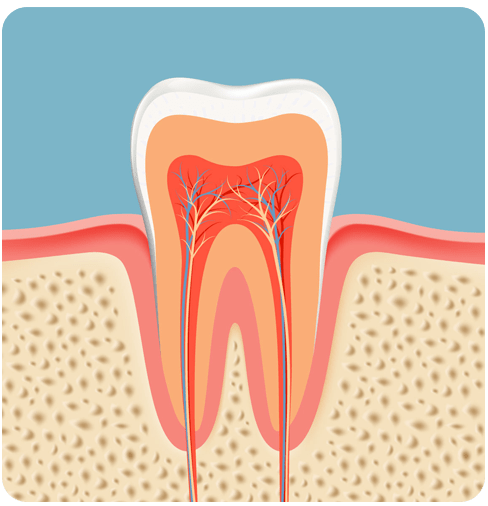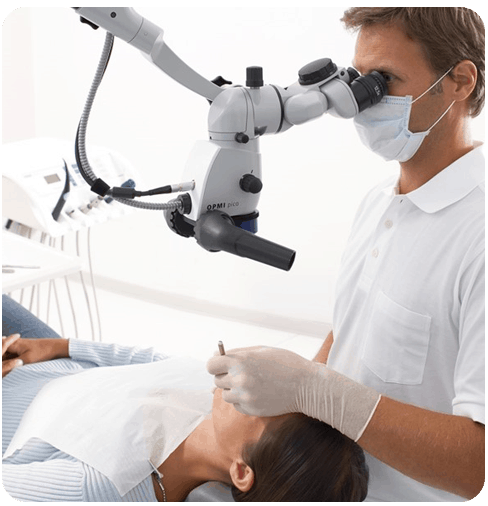Aardent Dental Centre Root Canals
Your tooth is a living, independent structure. Each one has its own blood and nerve supply filling the hollow centre (or “canal”). Unfortunately, these delicate tissues in your tooth can become injured or infected because of decay or trauma.
Infected dental nerves can result in
- Pain when exposed to hot foods or drinks
- Tenderness when biting down
- A dying, discoloured tooth
- Abscesses
- Facial swelling or secondary infections
Unless the tooth is non-restorable and needs to be extracted, a root canal procedure can eliminate the infection and preserve your tooth.


What Is Root Canal Therapy?
Also called “endodontic treatment,” a root canal procedure involves opening the space inside of your tooth and removing the infected tissues inside. Then we place an antibacterial sedative inside of the tooth to eliminate any remaining bacteria. A week or so later, we remove the putty and place a filling material down into the hollowed canals, sealing off your tooth. Teeth that have undergone root canal therapy are no longer alive. To protect the brittle enamel left behind, we place a crown over the tooth. This restoration strengthens your tooth while preventing bacterial from re-entering it. Without a crown, the tooth would be more prone to fracture or wearing away or becoming reinfected.
Diagnosing Abscessed Teeth
Some teeth may never exhibit signs of an infected nerve, while others are quite obvious. If you have noticed a visible abscess along the gumlines or have a large cavity, it’s likely that bacteria have already reached the inside of your tooth.
To diagnose and plan appropriate treatment, we will take a small X-ray of your tooth that shows the root and areas around it. After we have this imagery, we can determine if the tooth is repairable or needs to be removed.
Find Oral Surgery in Victoria Park
Contact us today to learn more about how we can help.
